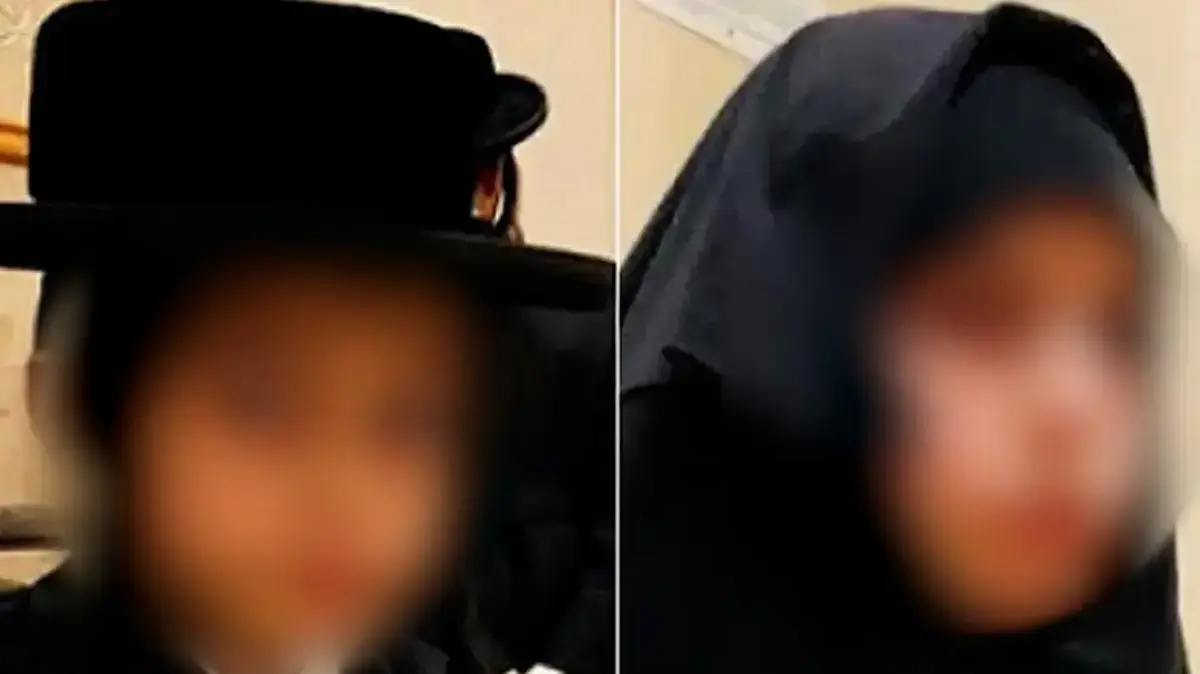"Jewish destinies in the district of FFB": The marriage saved her life
Created: 01/18/2022, 02:22 p.m
By: Ingrid Zeilinger
After the end of the war, Anna Bär did not say a word about the injustice she had suffered.
The photo shows her with her grandchildren Heinrich and Renée in 1946. © Goldmann
She had converted to the evangelical faith.
Nevertheless, Anna Bär was classified as a Jewess.
Her whole family suffered from this in the Third Reich.
The story of Anna Bär is one that Elisabeth Lang chose for her women's calendar "Jewish Destinies in the District of Fürstenfeldbruck".
A story of consensual silence.
Fürstenfeldbruck/Gröbenzell – It doesn't matter which woman's fate Elisabeth Lang considers: "It always affected the whole family," says the 55-year-old Bruckerin. Based on the special exhibition "The Invisibles Visible" in the Jexhof Farm Museum, she dealt with the fates of twelve women from the district and portrayed them (see box). She had already dealt with Jewish women in a lecture at the historical association. Now she leafed through publications on the Nazi era and - if possible - also made contact with descendants.
This is how Elisabeth Lang came across the story of Anna Löwenstein and her sister Irma, whose fate is presented in April.
Her grandson Heinrich Goldmann, who lives in Olching, told her the touching story: Anna, who was born on December 23, 1892 as the daughter of Franziska and Samuel Löwenstein, was a trained nurse.
"She converted to the Protestant faith because she felt increasingly alienated from the rituals of Judaism," says Elisabeth Lang.
But that didn't mean protection from the Nazis.
"It was about descent in the biological sense." Her mother was Jewish, so Anna remained.
resigned from honorary posts
She felt the consequences, but so did her husband Hans Bär, whom she had married in 1917.
The Bärs had lived in Gröbenzell with their daughter Liselotte since 1925.
Hans Bär, a sociable person, had to take a step back professionally and in his club work.
He had to give up his honorary posts, including the vice chairmanship of the gardening association.
He also suffered from harassment at work.
But the family accepted fate and even hid Anna's sister Irma in their house.
The marriage certificate
In 1945, Anna Löwenstein was threatened with being transported to a concentration camp. But an acquaintance obtained a reprieve - which meant her rescue. At least that is what she described in a questionnaire on reparations after the end of the war, in which she was supposed to describe her career and the injustice she had suffered. "Her luck was that she was covered by marrying an Aryan man," explains Elisabeth Lang. It was not her faith that saved the Protestant, but her marriage certificate.
After the war, Hans Bär was able to resume his professional and club life positions.
The couple stayed in Gröbenzell, as her grandson Heinrich Goldmann told her, reports Elisabeth Lang.
Not a word was said about the bad time and the injustice that had befallen them.
"It was a consensual not talking about the time," Lang explains.
"This silent suffering and silence affected me greatly." Anna Bär died on July 24, 1968 while visiting her daughter Liselotte in Alsace.
You can buy the calendar there
"Jewish Destinies in the District of Fürstenfeldbruck" is the fourth women's calendar that Elisabeth Lang has published.
The three previous issues were generally about prominent and lesser-known women from Fürstenfeldbruck and the surrounding area.
But this time the exhibition created a special focus, says Lang.
"I want to bring people out of oblivion."
The calendar has an edition of 250 and costs 14.95 euros.
It is available in bookshops, at the Jexhof, in the FFB and St. Ottilien monastery shops and in the museum.
imu
The series:
Elisabeth Lang presents twelve Jewish women and their fates in her women's calendar.
Every month, the author tells the Tagblatt how she came to the women and their stories - so that they are not forgotten.









